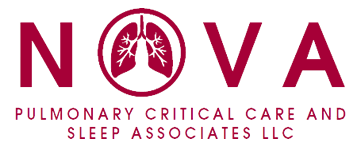Sleep Apnea Treatment in Lansdowne, VA
If you are looking for a sleep apnea specialist in the Lansdowne, VA area, then you’ve come to the right place! Sleep apnea is incredibly common, but it can also be incredibly dangerous. If you suspect that you or a loved one suffers from this condition, please seek care at with one of our board certified doctors quickly! Treatment can ease your symptoms and help prevent further, more severe complications such as heart problems.
-
-
We have an affiliation with Lansdowne, VA based Inova Loudoun Hospital.
-
We pledge to give you our best quality care for sleep disorders, respiratory illness, pulmonary and critical care.
-
We are an affordable option for you and your family, accepting all forms of insurance. We do not refuse treatment for any patient.
-
Our top rated physician, Dr. Aditya Dubey is highly rated by patients throughout the Northern Virginia area.
-
Located 5 minutes away from nearby Lansdowne Town Center Shopping Mall
-
Getting to Know the Risk Factors and Causes
While everyone is at risk of developing sleep apnea, there are some factors and certain physical traits can enhance this risk.
Risk Factors for Developing Sleep Apnea May Include:
- Excess Weight
- Thicker Neck Circumference
- Narrowed Airways
- Being Male
- Being Older
- Family History
- Smoking
- Narcotics Use
- Strokes
- Heart Disorders
- Alcohol Use
- Sedative or Tranquilizer Use
- Nasal Congestion
Sleep apnea is categorized as one of three common types:
- Obstructive Sleep Apnea – The most common type, caused by relaxed throat muscles
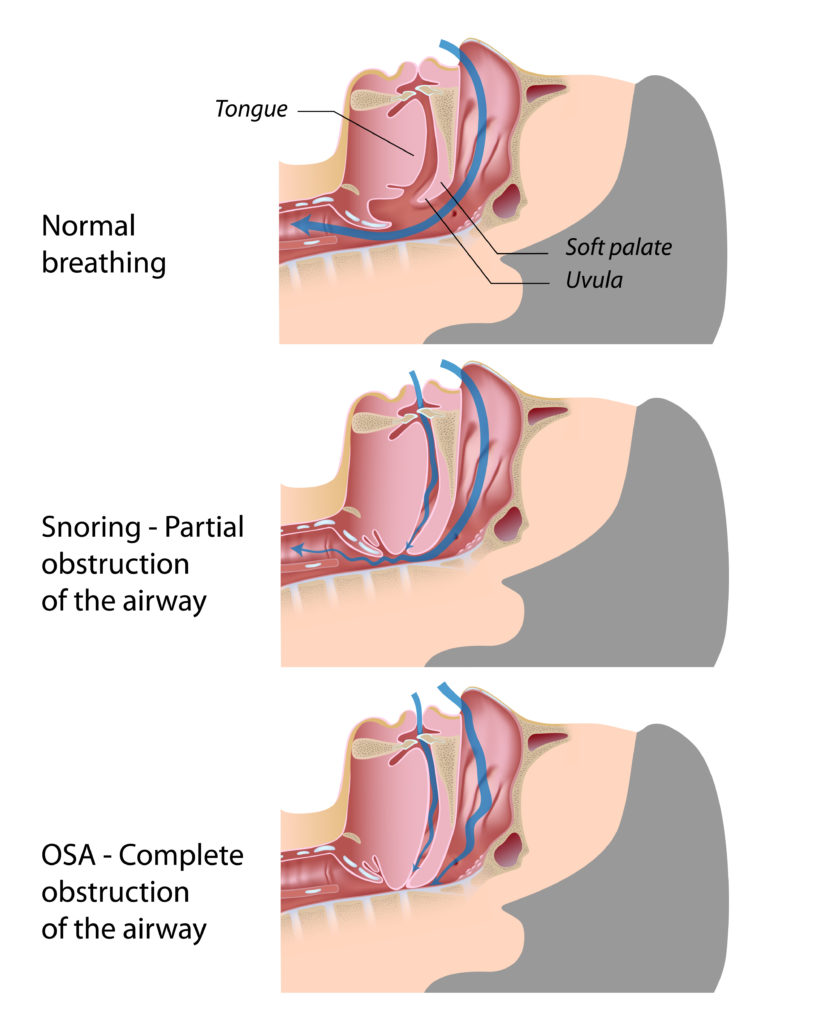 Central Sleep Apnea – The brain is not sending proper signals to muscles that control breathing
Central Sleep Apnea – The brain is not sending proper signals to muscles that control breathing- Complex Sleep Apnea Syndrome – Aka treatment-emergent central sleep apnea; obstructive and central sleep apnea combined
How to Recognize Potential Sleep Apnea
One complication in determining which sleep apnea you have is that symptoms of the two main kinds often overlap. However, realizing you have it is the first step in the diagnosis.
Symptoms to watch for include:
- Dry mouth when you wake
- Episodes during sleep where you stop breathing
- Gasping for air during sleep
- Loud snoring
- Hypersomnia – excessive daytime sleepiness
- Insomnia – difficulty staying asleep
- Irritability
- Morning Headaches
- Trouble focusing or paying attention
Sleep Apnea can also lead to other health complications like Daytime Fatigue, High Blood Pressure, Heart Trouble, Type 2 Diabetes, Metabolic Syndrome, Complications with Medications and Surgeries, Liver Problems, and Sleep-Deprivation in partners. Click here to learn more about the pulmonary disorders and illnesses that come if your sleep apnea is not addressed properly.
Diagnosis
The more information you and/or your partner can provide about symptoms and sleep history will help us recognize the signs of sleep apnea. The most common test is Nocturnal Polysomnography. These take place overnight at the sleep center; patients are hooked to equipment that allows us to track your breathing and other body functions.
The second testing option is Home Sleep Testing. These tests typically measure your airflow, blood oxygen level, breathing patterns, and heart rate. Abnormal results may lead to therapy prescriptions without further testing. Some portable monitoring devices are not 100% accurate, so you may still undergo the polysomnography despite home testing results.
Patients diagnosed with Obstructive Sleep Apnea may need to undergo ear, nose, and throat testing to rule out blockages. Patients with Central Sleep Apnea may undergo cardiologist testing or neurologist testing to rule out potential causes.
Treatments
Some cases of only require a few lifestyle changes for relief– e.g., losing weight or quitting smoking. Nasal allergy treatments can also help. When these are not enough, you can be prescribed a therapeutic device which opens blocked airways or undergo surgery.
Therapies
Continuous Positive Airway Pressure – Commonly known as the CPAP machine, this involves a mask that delivers air pressure while you sleep. This pressure keeps your airways open, preventing both snoring and sleep apnea. CPAP is the most common and reliable treatment, but many patients find it uncomfortable or cumbersome. It takes time to become used to the machine; you may need to adjust the tension on the mask’s straps. Masks also come in different styles, so you may find comfort with another style. Whatever the case, do not stop using the machine without speaking to your doctor about any issues.
Airway Pressure Devices – If the CPAP machine proves unsatisfactory, you may need a different device. An Auto-CPAP, for example, adjusts the air pressure while you sleep. A BPAP machine supplies bilevel positive airway pressure, providing more pressure when you inhale and less when you exhale.
Oral Appliances – These are easier to use than a CPAP, though not as reliable. Oral appliances are designed to keep your throat open. Some bring your jaw forward, which can relieve snoring and mild OSA. Dentists offer a variety of these devices that can be attuned to your mouth. You may need to try a few different types to find the right one for your apnea.
Surgeries
When lifestyle changes and therapies fail after a three-month trial, it’s time to consider surgical corrections. Certain jaw structure problems will find this assigned as the first option. Depending on your personal sleep apnea diagnosis, Dr. Dubey will discuss which surgery may best assist you in detail during your consultation appointment.
Potential surgeries include:
- Tissue Removal
- Tissue Shrinkage
- Jaw Repositioning
- Implants
- Nerve Stimulation
- Tracheostomy
- Tonsil or Adenoid Removal
- Bariatric Surgery
Your Lansdowne, VA Sleep Apnea Specialists
Every patient is different, and everyone deserves personalized care. Our amazing team at NOVA Pulmonary is here to help answer any of your questions and personalize your treatment plan. If you suspect that you or a loved one suffer from sleep apnea, or if you are having trouble sleeping, please contact our office and set up an appointment!
NOVA Pulmonary Critical Care and Sleep Associates Patient Testimonials
Dr. Dubey is fully dedicated to treating his patients with utmost care. I had a diagnosis for sleep apnea. I was taking sleep medicine for weightloss and was feeling lethargic all the time. Therefore, I Consulted with Dr. Dubey for a second medical opinion in the Fairfax office. He attentively listened to me and did a few more tests which were totally non-invasive. I really appreciate him for all the treatment he has been doing for me to get better. If you have sleep issue and need a sleep specialist in Fairfax, VA I recommend NOVA Pulmonary Critical Care and Sleep Associates. ~ patient Fairfax, VA
I cannot recommend this place highly enough. Suffering from sleep apnea leaves you exhausted. I started visiting NOVA Pulmonary Critical Care and Sleep Associates last year and am really happy with how they have helped me better my quality of life. Dr. Dubey has been treating my sleep apnea and now I sleep well and comfortably. Best sleep specialist, extremely attentive and detail oriented sleep doctor! ~ patient, Ashburn, VA
Dr. Dubey specializes in areas of sleep and has helped me tremendously overcome my sleep disorders. I have him to thank for helping me get better. He has is very supportive, easy to talk to and treats me like a family member. All the staff is friendly and compassionate. ~ patient, Chantilly, VA
Office Locations
Conveniently located near you in Loudoun and Fairfax VA
NOVA Pulmonary – Dulles
24430 Stone Springs Boulevard
Suite 200
Dulles, VA 20166
NOVA Pulmonary – Lansdowne
19415 Deerfield Avenue
Suite 301
Landsdowne, VA 20176
Meet the team at NOVA Pulmonary Critical Care and Sleep Associates
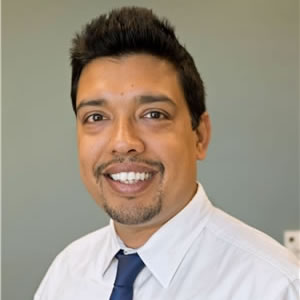
Dr. Aditya N Dubey, M.D, F.C.C.P. – Founder
Specialty:
Pulmonary, Critical Care and Sleep Medicine
Board Certified by American Board of Internal Medicine in the Subspecialities of Pulmonary Medicine, Critical Care Medicine and Sleep Medicine. Learn more about Dr. Dubey
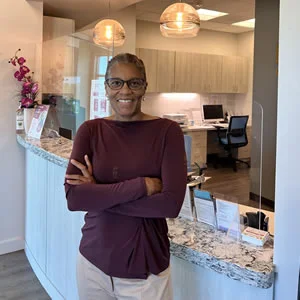
Dr. Petra Thomas, M.D.
Specialty:
Pulmonary Medicine
Board Certified by American Board of Internal Medicine in the Subspecialities of Pulmonary Medicine. Learn more about Dr. Thomas
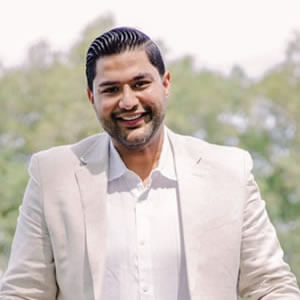
Dr. Arman Murabia, M.D.
Specialty:
Pulmonary, Critical Care and Sleep Medicine
Board Certified by American Board of Internal Medicine in the Subspecialities of Pulmonary Medicine, Critical Care Medicine and Sleep Medicine. Learn more about Dr. Murabia

Rebekah Lee, AGNP-C
Nurse Practitioner. Learn more about Rebekah Lee
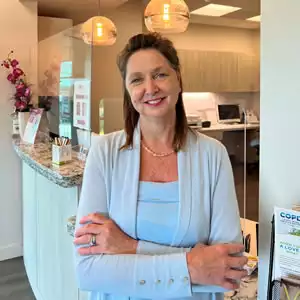
Christine Amorosi, AGNP-C
Nurse Practitioner. Learn more about Christine Amorosie
